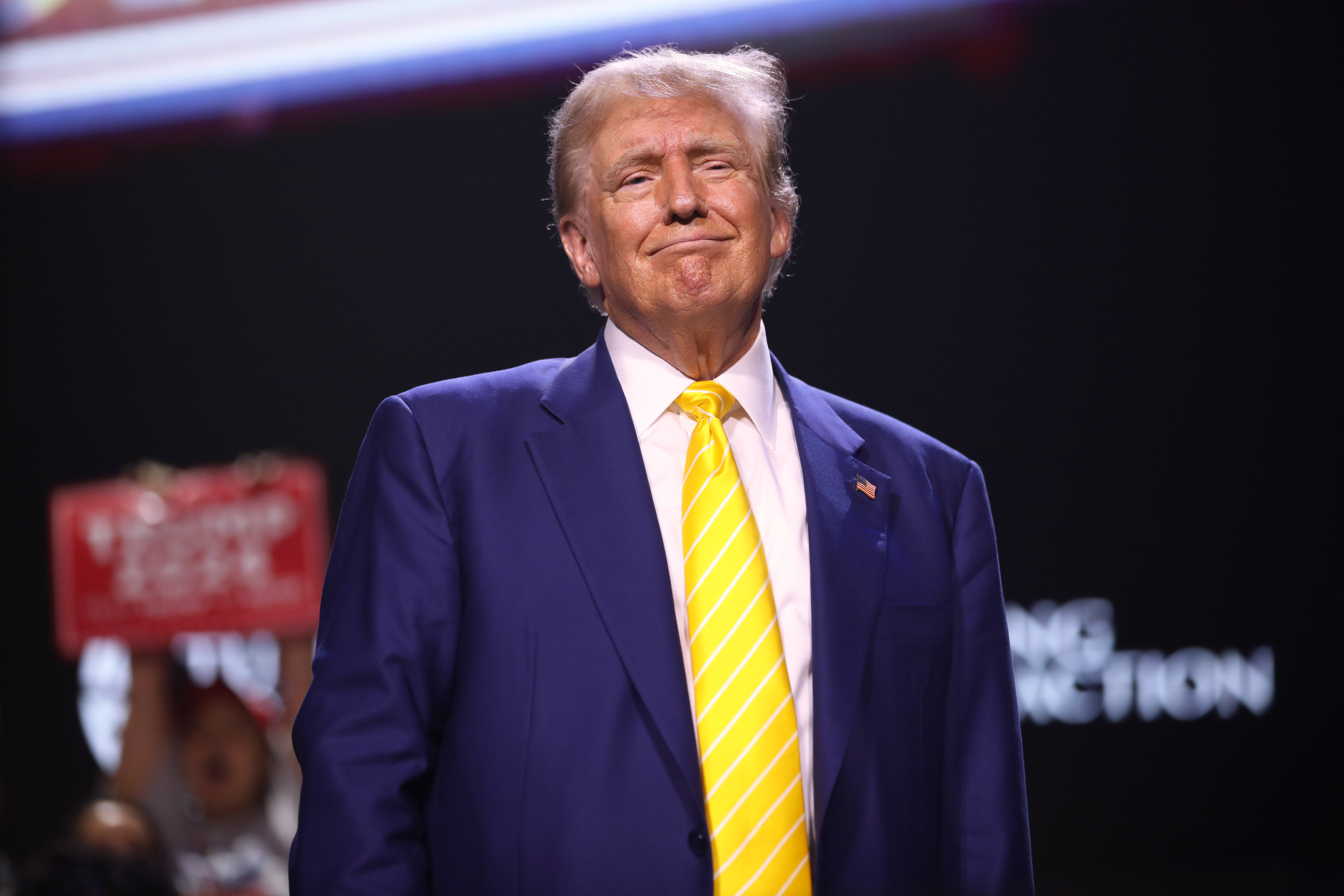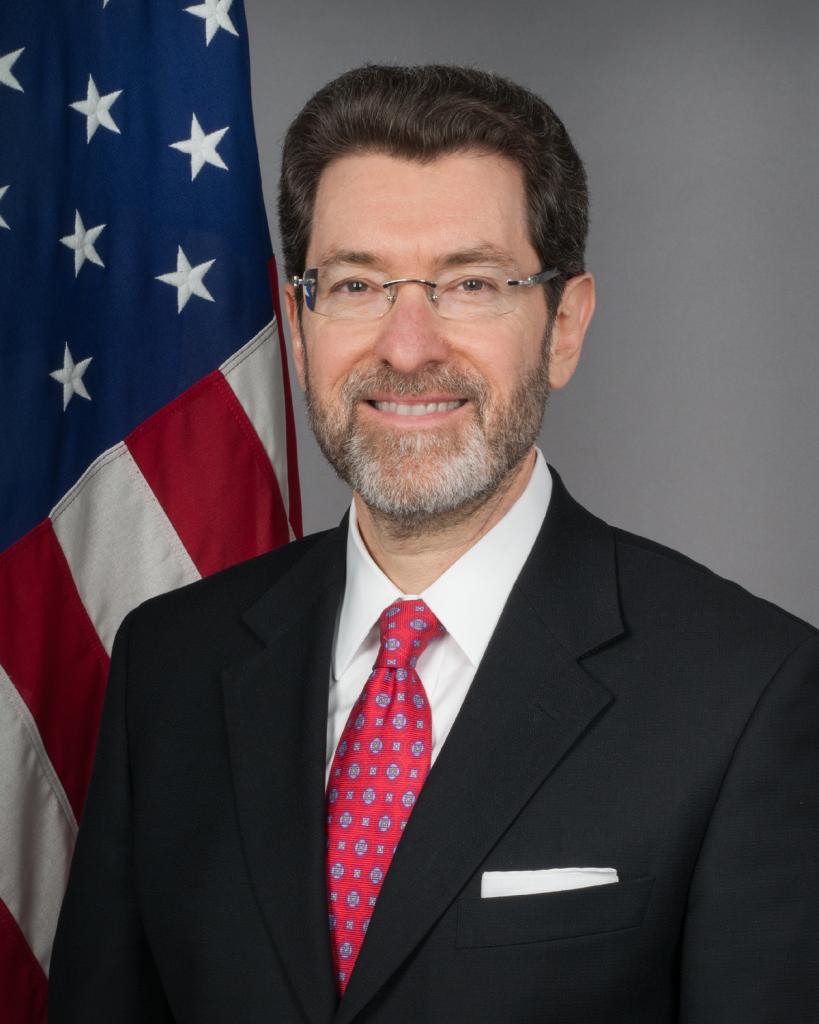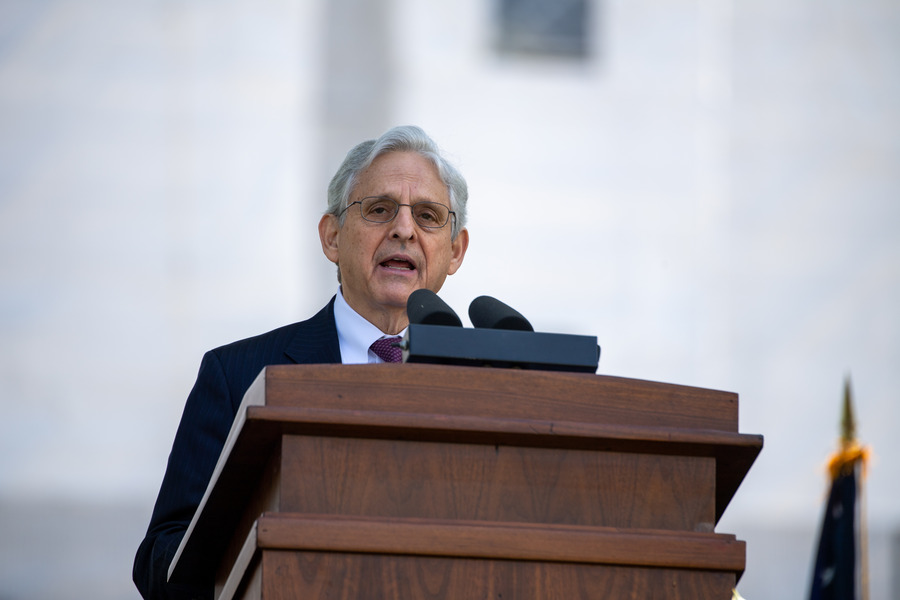Prepare for a 2024 ‘Mini Trial’ in Trump’s D.C. Prosecution

Published by The Lawfare Institute
in Cooperation With

With Donald J. Trump already having been convicted of 34 felonies in New York, considerable attention has focused on whether he will face another jury this year. Some observers have predicted that the D.C. trial before U.S. District Court Judge Tanya Chutkan, for allegedly conspiring to overturn the 2020 presidential election, will likely not commence before the November presidential election. If this proves to be the case, it will be the result of the inexcusable delay caused by the U.S. Supreme Court.
We cannot of course rule out the possibility that a trial can commence prior to the election. If the Supreme Court rules permissively with respect to the indictment as it stands now, Judge Chutkan could still move forward to trial expeditiously.
Alternatively, the Supreme Court’s coming rulings both on the question of presidential immunity and on the scope of one of the statutes at issue in the Jan. 6 case may prompt Special Counsel Jack Smith to slim down the prosecution by way of facilitating movement to trial. He could drop certain charges or pare down certain allegations that arguably implicate official presidential functions.
But there is another possibility, even if the Supreme Court rules in a restrictive fashion: We may see a kind of “mini trial” take place before the next election, one that would still inform American voters about Trump’s alleged felonies. This is because the Supreme Court may very well hold that Trump is immune from prosecution for official acts committed while serving as president and lay out some test for Judge Chutkan to apply to determine whether any of the charges Trump faces must consequently be dismissed. A possible multiday evidentiary hearing to apply that test would constitute the mini trial. That would allow a partial adjudication of Trump’s alleged misconduct in the form of determining whether or not his role in the attempted coup is immune from prosecution.
This mini trial wouldn’t produce a verdict. It would, however, produce a significant piece of evidentiary litigation over Trump’s conduct. And if the judge found that significant aspects of the former president’s alleged actions were not subject to immunity, and that his prosecution for 2020 election interference could proceed, that would be notable (to say the least).
If the Court orders a remand for fact-finding, Judge Chutkan should be guided in holding such a mini trial by the closest recent criminal analog regarding this 2020 election interference prosecution: two evidentiary hearings held in Atlanta federal court. They addressed whether Mark Meadows and Jeffrey Clark, Trump’s co-defendants in the Georgia state prosecution for allegedly conspiring to overturn the election, acted as part of their official federal duties.
There is another analog in Jan. 6-related litigation, but it is in our view less applicable because it concerned a civil matter. That is the trial court litigation in the Blassingame case, in which Capitol Police officers and members of Congress have sued Trump for harms allegedly caused by the Jan. 6 Capitol attack. The trial court set a lengthy discovery schedule to inform its decision on immunity. But civil cases, with their elaborate discovery processes, are not subject to the Speedy Trial Act and in general implicate different law and procedure than criminal ones. As we discuss below, those differences are particularly pronounced here—both legally and factually.
Judge Chutkan should follow New York State Supreme Court Justice Juan Merchan’s model concerning efficiency and timeliness and promptly schedule a mini trial to receive witness testimony and other evidence regarding whether the acts Trump allegedly criminally took to overturn the 2020 presidential election were official ones. This will protect the defendant’s rights and promote the efficient, effective administration of justice. It will also have the side benefit of allowing voters to be more informed when they cast their ballots in November.
Where We Are Now
In late February, despite rejecting an earlier opportunity in December, the Supreme Court agreed to take up Trump’s appeal from the U.S. Court of Appeals for the D.C. Circuit’s unanimous, per curiam opinion which upheld Judge Chutkan’s ruling rejecting Trump’s presidential immunity arguments. Trump argues that because he was president at the time of the alleged crimes, he is immune from prosecution. In oral arguments, his legal team went so far as to claim he would be immune from prosecution even if he had ordered SEAL Team Six to assassinate his political rivals (barring first being impeached and convicted, which has never happened in American history). The Court has slow-walked the case, scheduling oral argument for the very last day of arguments this term, and has still failed to rule.
The Court’s decision may further delay the prosecution by reversing the D.C. Circuit’s decision and imposing some hitherto unknown test for determining whether a president is immune from criminal prosecution for his acts while in office.
The test might look something like the one discussed as a fallback argument in an amicus brief filed in the case on behalf of former government officials and constitutional lawyers in support of the United States’s position against immunity. In the civil context, the president is immune from civil liability and lawsuits for acts committed within the “outer perimeter” of his official responsibilities as president. Such a ruling would likely require the district court to determine, as a factual matter, which allegations in the indictment deal with official acts and, as a legal matter, how the articulated standard of immunity applies to these allegations.
The district court in Blassingame has, to some degree, already considered this question. It found that if the plaintiffs’ allegations are true, many of Trump’s actions in advance of the Jan. 6 Capitol attack did not fall within that outer perimeter. The D.C. Circuit affirmed the district court’s opinion denying Trump’s motion to dismiss on immunity grounds, although it directed the district court to afford Trump an opportunity to rebut those allegations before merits discovery. (The district court held Trump was not immune from suit with one exception not here applicable: the claim that he was liable under 42 U.S.C. § 1986 for his failure to exercise his presidential powers to stop the rioters.) These rulings are suggestive, but not conclusive, particularly as the acts in question overlap but are not the same.
The Supreme Court indicated in originally setting out the civil immunity test that criminal cases are categorically different and has acknowledged a significant need to deter and punish criminal conduct that transcends civil liability. Moreover, the D.C. Circuit in Blassingame explicitly distinguished that civil case from “whether or when a President might be immune from criminal prosecution.” Nevertheless, it is possible that a majority on the Supreme Court might apply this or some similar civil test to the very different criminal context—perhaps with some immunity less protective than the absolute immunity the court recognized in the civil context. If they do so, they might also direct Judge Chutkan to apply that test to determine whether any of the charges Trump faces should be dismissed because they are for acts within the outer perimeter of his official responsibilities.
Should Judge Chutkan Apply the Criminal or Civil Analog?
In our view, Judge Chutkan should follow the approach we have noted the Atlanta federal court took regarding the Meadows and Clark prosecutions: a mini trial to determine whether the defendant acted as part of his official federal duties. After a Georgia grand jury indicted Trump, former Trump Chief of Staff Meadows, former Trump Justice Department official Clark, and others for allegedly conspiring to overturn the 2020 election, Meadows and Clark sought to remove their prosecutions to federal court. They did so under the federal-officer removal statute, 28 U.S.C. § 1442(a)(1). This statute required Meadows and Clark to prove they were federal officers, that their charged conduct was performed under color of federal office, and that they had a colorable federal defense to remove the case to federal court. Because it did not order the summary remand of the prosecution, pursuant to 28 U.S.C. § 1455(b)(5) the Atlanta federal court held an evidentiary hearing last year to consider whether Meadows was acting within the scope of his federal duties when he committed acts state prosecutors allege were criminal.
Meadows himself testified at the hearing, which allowed prosecutors to present some of their best evidence, including a recording of the infamous Jan. 2, 2021, phone call on which Trump pleaded with Georgia Secretary of State Brad Raffensperger to “find” nearly 12,000 votes to overturn Joe Biden’s Georgia victory. The court rejected Meadows’s bid to move the state case to federal court; it found his allegedly felonious actions were not related to his official duties. That decision was upheld on appeal with the U.S. Court of Appeals for the 11th Circuit explaining that in “determining whether Meadows’s proof was competent, the district court was entitled to evaluate the demeanor and presentation of witnesses, assess the credibility of testimony including Meadows’s, and weigh the competing evidence.” A similar evidentiary hearing was held in federal court regarding co-defendant Clark, whose motion also failed. Meadows has indicated he is considering petitioning the Supreme Court to review the 11th Circuit’s decision; Clark’s appeal is still pending in the 11th Circuit, but we would be surprised if he did not follow Meadows’s lead to the Supreme Court.
The Blassingame court has taken a different path in that civil case. Trump there moved to dismiss the claims, including on grounds of presidential official-act immunity. As described above, the district court largely rejected his immunity defense.
On appeal, the D.C. Circuit affirmed, explaining that “[t]he sole issue before us is whether President Trump has demonstrated an entitlement to official-act immunity for his actions leading up to and on January 6 as alleged in the complaints. We answer no, at least at this stage of the proceedings.” As it was required to do at that stage, the court went on to take the allegations in the complaints as true and explain why Trump had “not demonstrated an entitlement to dismissal of the claims against him based on a President’s official-act immunity.”
The court noted, however, that the case was in the early motion to dismiss stage and “[i]n the proceedings ahead in the district court, President Trump will have the opportunity to show that his alleged actions in the runup to and on January 6 were taken in his official capacity as President rather than in his unofficial capacity as presidential candidate.” In remanding the case to the district court, the appellate court did not require setting a schedule for discovery regarding Trump’s immunity claims but noted that in this civil case “discovery bearing on the immunity question itself might be in order if the circumstances warrant it.”
On remand, the district court asked the parties to provide input regarding “whether the parties wish to pursue discovery as to the immunity question before merits discovery [and] assuming the parties will first seek immunity-related discovery ... a timeline for immunity-related discovery.” The court ultimately set a lengthy discovery schedule.
Why the Meadows/Clark Analog Fits and Blassingame Does Not
Although the Blassingame court has taken a different path than the two mini trials related to Trump’s co-defendants Meadows and Clark, Judge Chutkan should follow the Georgia federal court mini-trial route in this criminal election-interference case. The first reason is that Blassingame is a civil case in which the sort of protracted discovery by both parties that the court scheduled is typical. Criminal cases, of course, allow for some exchange of materials (as has already happened here with a massive Justice Department production)., But discovery tends to be primarily one way, and it does not typically feature the same kinds of protracted back-and-forth production processes as is routine in civil cases. In fact, the D.C. Circuit in Blassingame explicitly distinguished that civil case from the question of “whether or when a President might be immune from criminal prosecution.”
Given the substantial amount of information that Smith has already given to Trump, Judge Chutkan is in a position to expeditiously determine if any additional material is required and briskly move to provide Trump with an opportunity to present witnesses and evidence at a hearing in support of his immunity claim. As noted above, that is what the Atlanta federal trial court did and the 11th Circuit sanctioned, explaining that the district court was entitled to take advantage of the benefits it provided in allowing the court to resolve the threshold questions.
In addition, the focus of the criminal allegations in the Meadows and Clark criminal cases are in many ways almost identical to those in Trump’s federal criminal case. Those allegations focus on acts that federal courts have concluded, after a mini trial and without the need for lengthy discovery, were clearly not performed under color of federal office. On the other hand, the allegations in the Blassingame civil case are more narrowly focused on Trump’s Ellipse speech immediately preceding the Capitol attack, which allegedly caused the harm of which the plaintiffs complain. Whether that speech fell within Trump’s presidential duties is arguably a more complicated, fact-intensive question involving a dispute by the parties regarding the underlying facts themselves.
The Georgia indictment charges Meadows with two counts: Count 1 (violation of the Georgia Racketeer Influenced and Corrupt Organizations (RICO) Act) and Count 28 (solicitation of violation of oath by public officer). Count 1 relates to Meadows’s participation in the overarching conspiracy to overturn the 2020 presidential election. Count 28 relates to his participation in Trump’s Jan. 2, 2021, call to Georgia Secretary of State Raffensperger asking him to “find” votes to overturn Biden’s Georgia victory and unlawfully influence the election results in violation of Raffensperger’s public officer oath. Trump is also charged with both of those counts.
Federal trial and appellate courts unanimously agreed that Meadows allegedly conspiring to overturn the 2020 presidential election was not performed as part of his official duties. They concluded that Meadows, as Trump’s chief of staff, had no role in supervising state elections and could not engage in electioneering on behalf of Trump’s campaign. For example, the 11th Circuit agreed with the district court that Meadows’s call to Raffensperger was done outside his official authority “on behalf of the Trump campaign,” that Meadows’s meeting with Michigan state election officials was to advance “‘President Trump[’s] ... personal interest in the outcome of the election in Michigan,’” and that Meadows’s text message to an employee of the Office of the Georgia Secretary of State asking about speeding up signature verification “if the Trump campaign assist[s] financially” was also “self-evidently campaign related.” The court concluded that “whatever the precise contours of Meadows’s official authority, that authority did not extend to an alleged conspiracy to overturn valid election results.”
Trump faces very similar allegations in the D.C criminal case, with many identical underlying facts. For example, both the call to Raffensberger and the meeting with Michigan election officials is described not only in the Georgia indictment but also in the D.C. one. Similarly, both indictments discuss Meadows traveling to the Cobb County Civic Center to observe the signature verification process taking place there. And just as Trump is charged with violating the Georgia RICO Act by conspiring to overturn the election, this alleged conspiracy resulted in a D.C. grand jury charging him with conspiring to defraud the United States (Count 1), obstructing an official proceeding (Count 2), and limiting American voters’ right to vote and have their vote counted (Count 3). Thus, just as federal courts concluded about Mark Meadows’s role in the conspiracy to overturn the election, following a mini trial Judge Chutkan might rule with regard to Trump that “whatever the precise contours of [his] official authority, that authority did not extend to an alleged conspiracy to overturn valid election results.”
Lessons—and Concessions—From the SCOTUS Oral Argument
The Supreme Court oral argument concerningTrump’s immunity claim also suggests that such an outcome would not be surprising and that a mini trial would be more appropriate than a lengthy period of discovery. For example, Trump’s attorney claimed that his client’s call to the chairwoman of the Republican National Committee asking her to gather electors in certain states and falsely representing that their votes would be used only if ongoing litigation in one of the states changed the results in Trump’s favor was an official act within the outer perimeter of Trump’s presidential duties. Yet, as one of the authors has previously explained, no factual development is likely to provide support for such a baseless claim. The same is true regarding Trump’s claims that pressuring members of Congress to object to the counting of electoral votes and pressuring Vice President Pence to take unilateral action regarding the count was official conduct.
Moreover, Trump’s attorney conceded at oral argument that various allegations in the indictment concern unofficial acts. In fact, there is ample basis to conclude that most of the conduct alleged in the indictment could not be morphed into an official act through any factual development.
By contrast, the allegations in the Blassingame civil case are different and focused on Trump’s Ellipse speech, and whether that speech fell within Trump’s presidential duties. That is arguably a more complicated, fact-intensive question involving a dispute by the parties regarding the underlying facts themselves. In fact, the trial court rejected Trump’s claim that the facts of the civil Blassingame case were so similar to those of the D.C. criminal case that the former should be stayed pending the resolution of the latter.
As one of the authors has previously explained, various collateral facts can affect whether a given speech was made as part of the president’s official duties. For example, the same speech given as the president’s State of the Union address to Congress might be official in that context but unofficial if delivered at a political party’s nominating convention. The Blassingame plaintiffs allege the Ellipse “Save America” rally at which Trump spoke was organized and funded by his campaign, while Trump claims it was not related to his campaign. The D.C. Circuit explained that the resolution of this factual dispute could ultimately affect the legal conclusion regarding whether the speech was within the outer perimeter of the president’s official duties.
But, as indicated above, such factual disputes do not dominate in Trump’s criminal D.C. case in the same way; in fact, it might be hard to imagine how any facts could transform the “alleged conspiracy to overturn valid election results” into official acts.
Finally, the Speedy Trial Act and the Supreme Court’s recognition of the particular importance of avoiding delay in criminal cases also counsel in favor of Judge Chutkan following the Meadows and Clark mini trial path rather than the lengthy discovery schedule set out in the civil Blassingame case. In fact, as the Justice Department argued in urging the Supreme Court to take up Trump’s immunity appeal sooner, Trump’s federal case would particularly benefit from a prompt resolution of the immunity question. This too argues in favor of a mini trial.
What Would a Mini Trial Look Like?
Thus, Judge Chutkan should quickly schedule an evidentiary hearing to apply the Supreme Court’s test, whatever it may turn out to be. The government would be able to call to the stand some of the key witnesses in the case, who could provide testimony related to Trump’s acts and the circumstances in which they took place—enabling the court to determine whether they were within the outer perimeter of his presidential duties. Such witnesses could potentially include Vice President Pence, Attorney General William Barr, and others. The prosecution would also be able to introduce documentary and other evidence in support of its position that the charges are for unofficial conduct. The defense, conversely, would likewise be able to call witnesses, potentially including Trump himself, and introduce evidence in support of its contrary position that the charges should be dismissed on presidential immunity grounds. Both sides could then use the record generated to argue as to how the law articulated by the Supreme Court applies to the indictment.
While a mini trial would not result in a jury’s determination regarding Trump’s guilt, it would—as a collateral matter—employ the adversarial process to get at the truth in a way that could provide voters with more information about Trump’s alleged 2020 election interference conspiracy and assist them in rendering their political verdict at the ballot box in November. While other pretrial proceedings, or an appeal of a subsequent immunity ruling, could potentially prevent the ultimate trial from beginning before the election, there seems to be no reason Judge Chutkan cannot hold an evidentiary hearing long before November to determine whether any of Trump’s charges should be dismissed because he is immune.
In fact, both parties should support such expeditious scheduling, although we harbor no illusion Trump will do so. Trump successfully argued he needed the Supreme Court to determine whether he was immune from the charges before the case could proceed in the trial court so as to avoid suffering the harms of being a defendant in a case in which he cannot legally be convicted due to his immunity. Therefore, Trump should also want any evidentiary hearing and decision by Judge Chutkan regarding whether he is immune to occur as quickly as possible—particularly given his repeated insistence that he is immune and will win on this issue. Moreover, Trump might have simply opposed the prosecution’s effort to fast-track the case to the Supreme Court so that the D.C. Circuit could get a first bite at the apple and he could potentially win there (although he ultimately lost). And the prosecution, through that unsuccessful effort to leapfrog the D.C. Circuit, has made clear that it would favor an expeditious mini trial on immunity.
Following any Supreme Court ruling setting out a test for Judge Chutkan to apply, a prompt immunity mini trial would advance the interests of defendant Trump, the prosecution, and the justice system itself. Although those interests are paramount here, the right of voters to know more about Trump’s alleged 2020 misconduct as he seeks to recover the powers of the presidency is an important collateral consideration as well.






